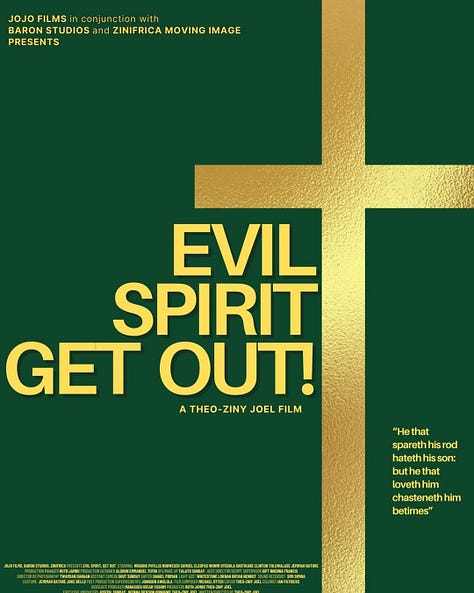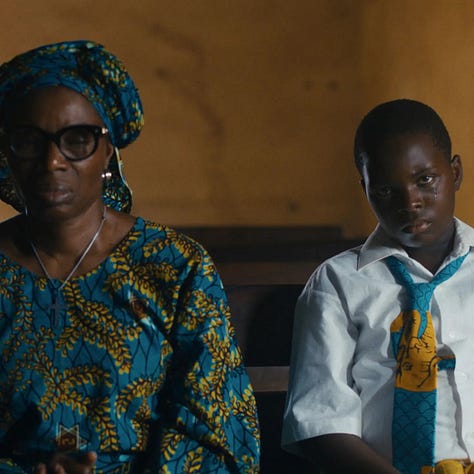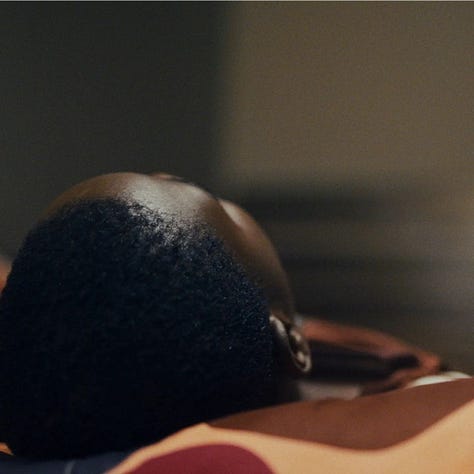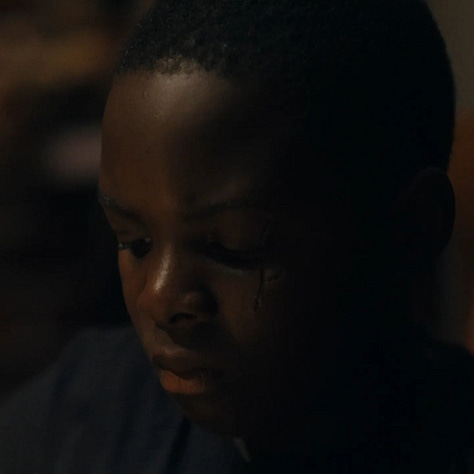"Evil Spirit, Get Out!" Challenges Traditional Beliefs on Parenting [#TAFM24]
It critiques misguided discipline while making a narrative choice that some may find equally misguided.
Evil Spirit Get Out is a short film, about 12 minutes long, directed by Theo-Ziny Joel. It was screened at the Annual Film Mischief 2024.
Evil Spirit Get Out takes a critical look at the age-old adage, “Spare the rod and spoil the child,” and delves into the consequences of this belief, particularly through the lens of a misunderstood young boy and his struggling mother.
The narrative follows Peter, a boy who endures relentless beatings from his mother, who believes that harsh discipline is the only way to rid him of perceived evil spirits. Friends and neighbors reinforce this idea, insisting that the boy is possessed and that physical punishment is necessary for his salvation. Despite their efforts, including fasting and prayers, the boy remains unchanged. In a desperate attempt, a woman named Dorcas suggests seeking help from a pastor who specializes in exorcising demons.
Throughout these encounters, the boy remains stoic and emotionless, almost lifeless. And it is anchored by a strong performance from the child actor, whose restraint and portrayal of detachment add to the film’s heavy atmosphere. His mother, a single parent overwhelmed by her own struggles, fails to connect with him, instead relying on others to manage what she cannot handle herself. This depiction of a mother burdened by life’s pressures resonates deeply, highlighting a troubling reality faced by many families.
For millennials, this story may strike a familiar chord. Even if the narrative doesn’t include the element of sexual abuse inflicted by the irresponsible pastor, it echoes the experiences of those who felt misunderstood or neglected by busy parents.
In a cruel twist of fate, it is only after Peter suffers abuse at the hands of the pastor that he begins to awaken a hidden voice within himself. Although the film suggests this transformation, it unfortunately ends abruptly just as the story begins to explore deeper themes. This sudden conclusion undermines the intricate world that has been built throughout the film, leaving viewers yearning for more resolution.
The decision to leave audiences hanging just when the story started to get interesting is particularly disappointing, undermining the very points the narrative seemed to be building towards. When the end credits rolled, a puzzling silence filled the hall—not the kind that follows a well-earned shock, but one laced with confusion and dismay. It was a palpable disappointment, so thick you could almost slice through it with a knife. The abrupt ending raises questions about the filmmaker's intent; why conclude the story when it was just beginning to make its points? This bewildering choice leaves viewers searching for answers and reflecting on whether the experience was truly worth the 12 minutes invested. Ultimately, whether this lack of resolution is acceptable will vary from person to person.












